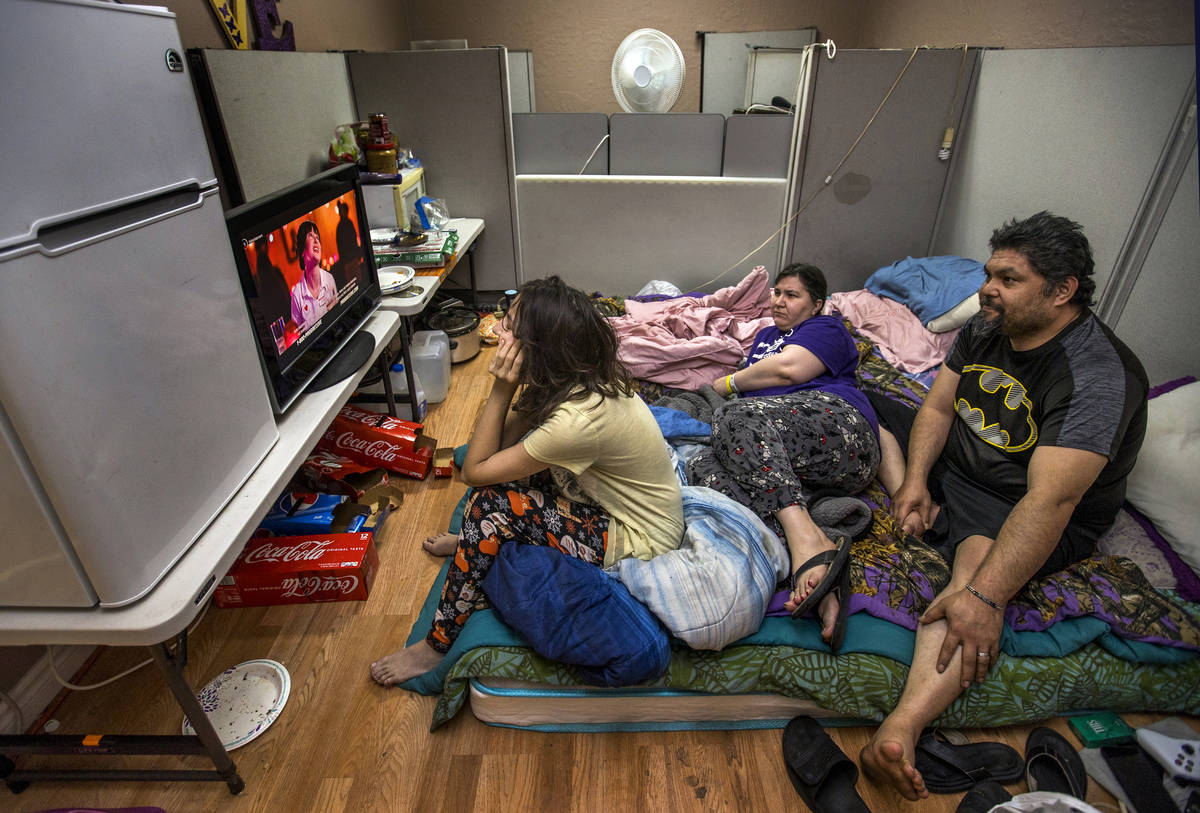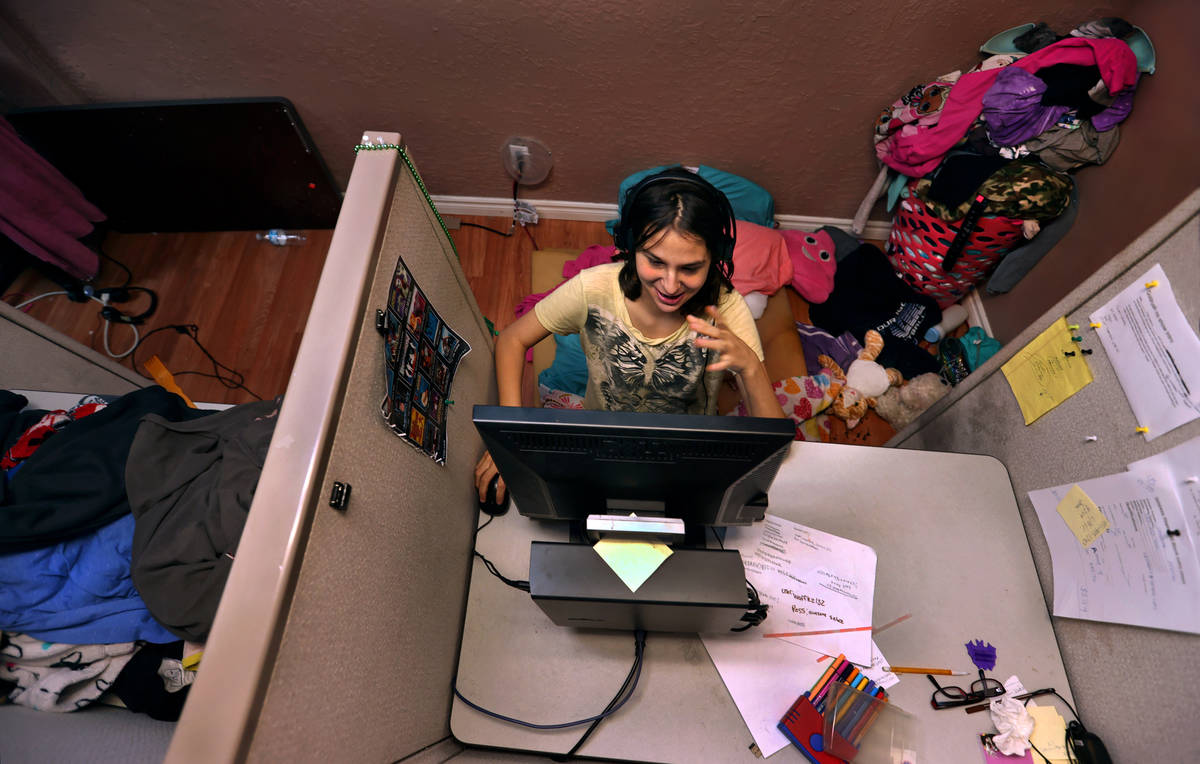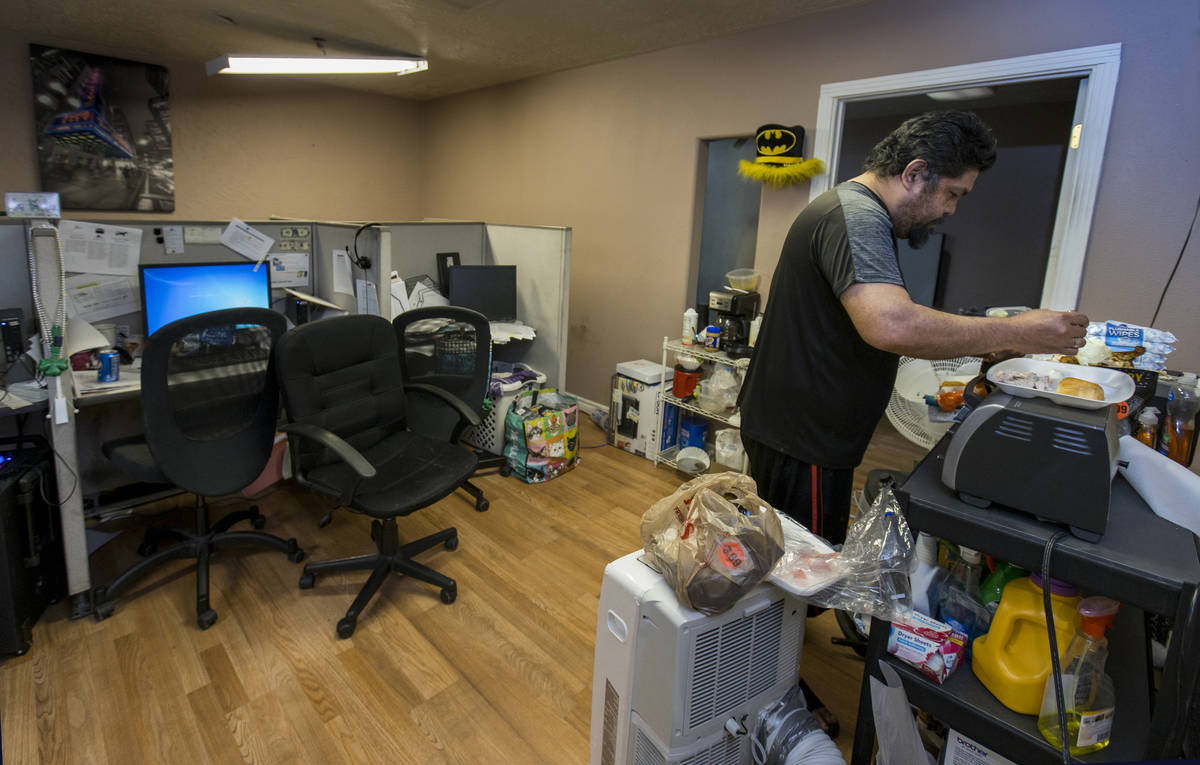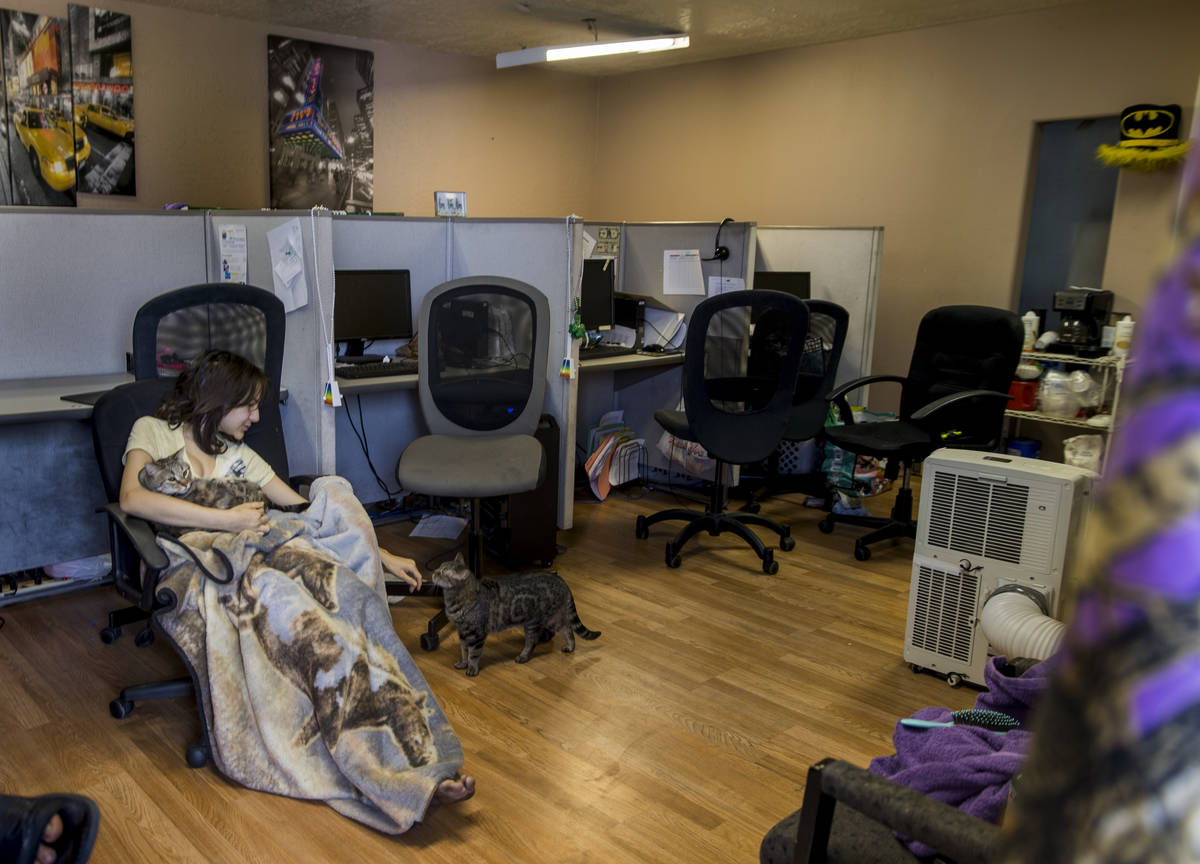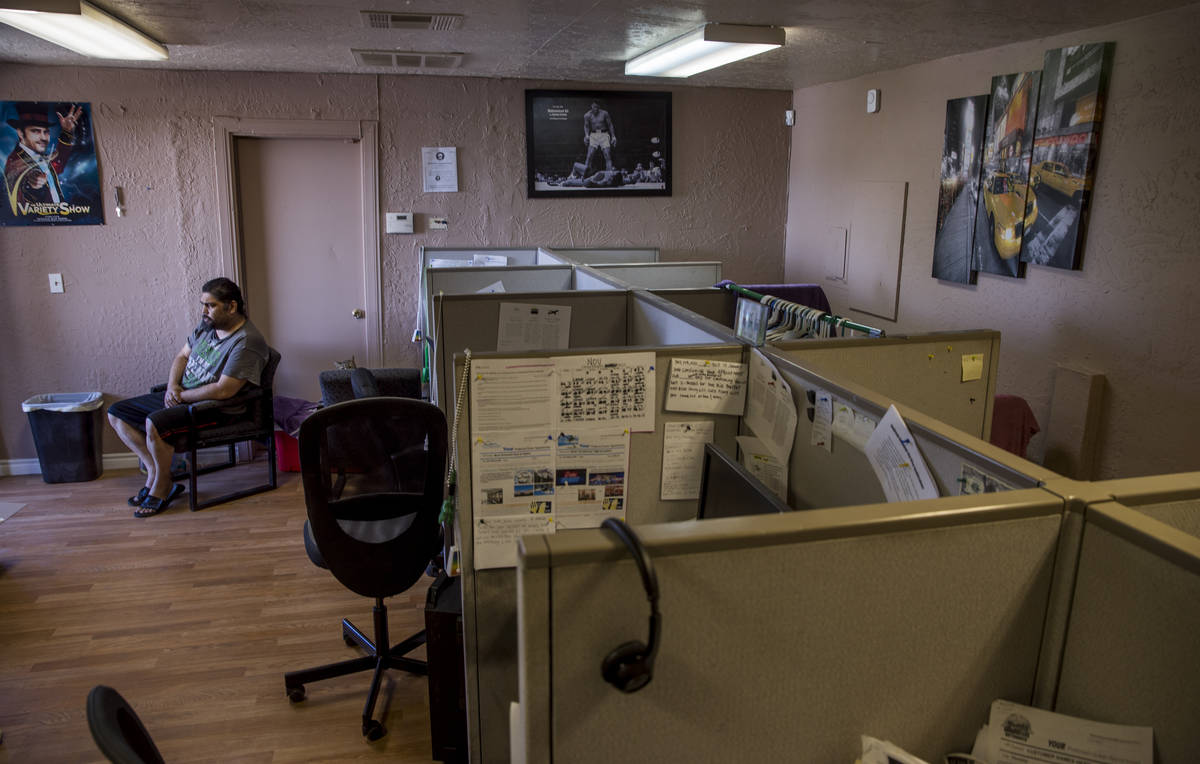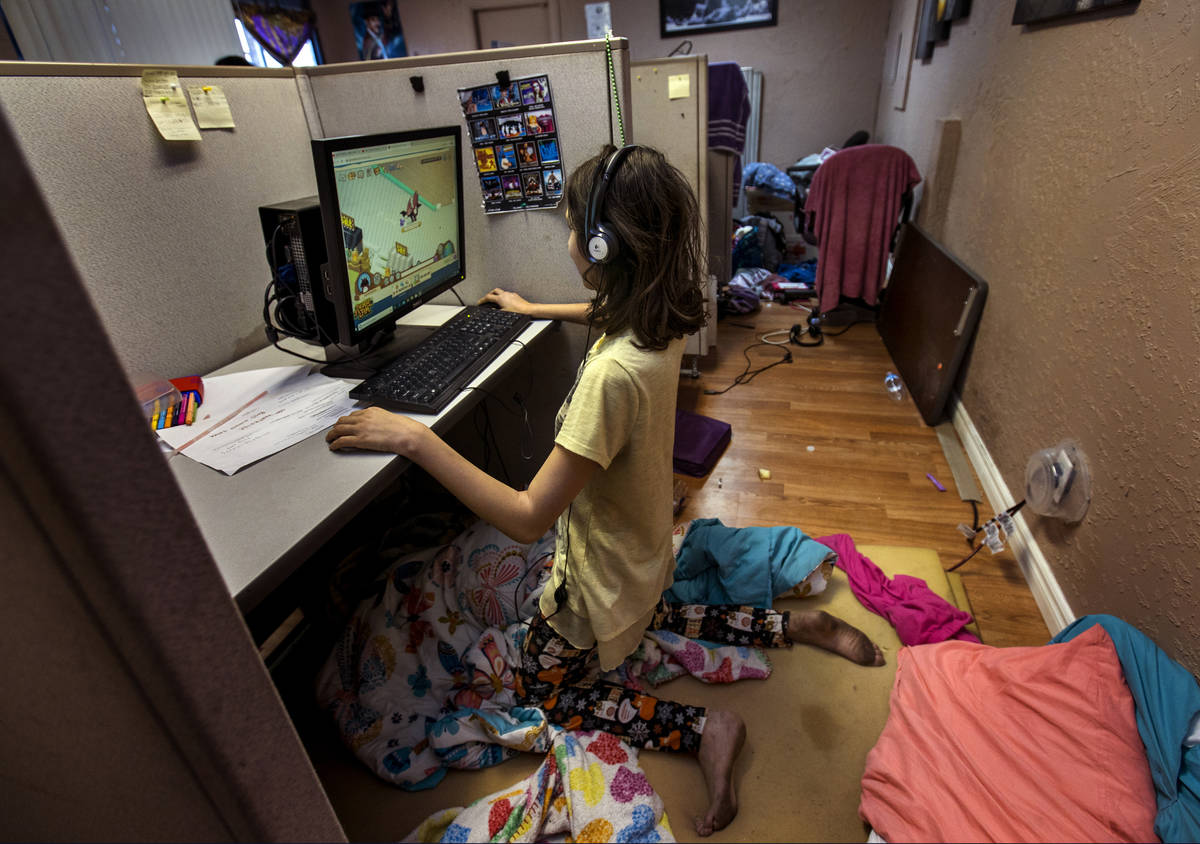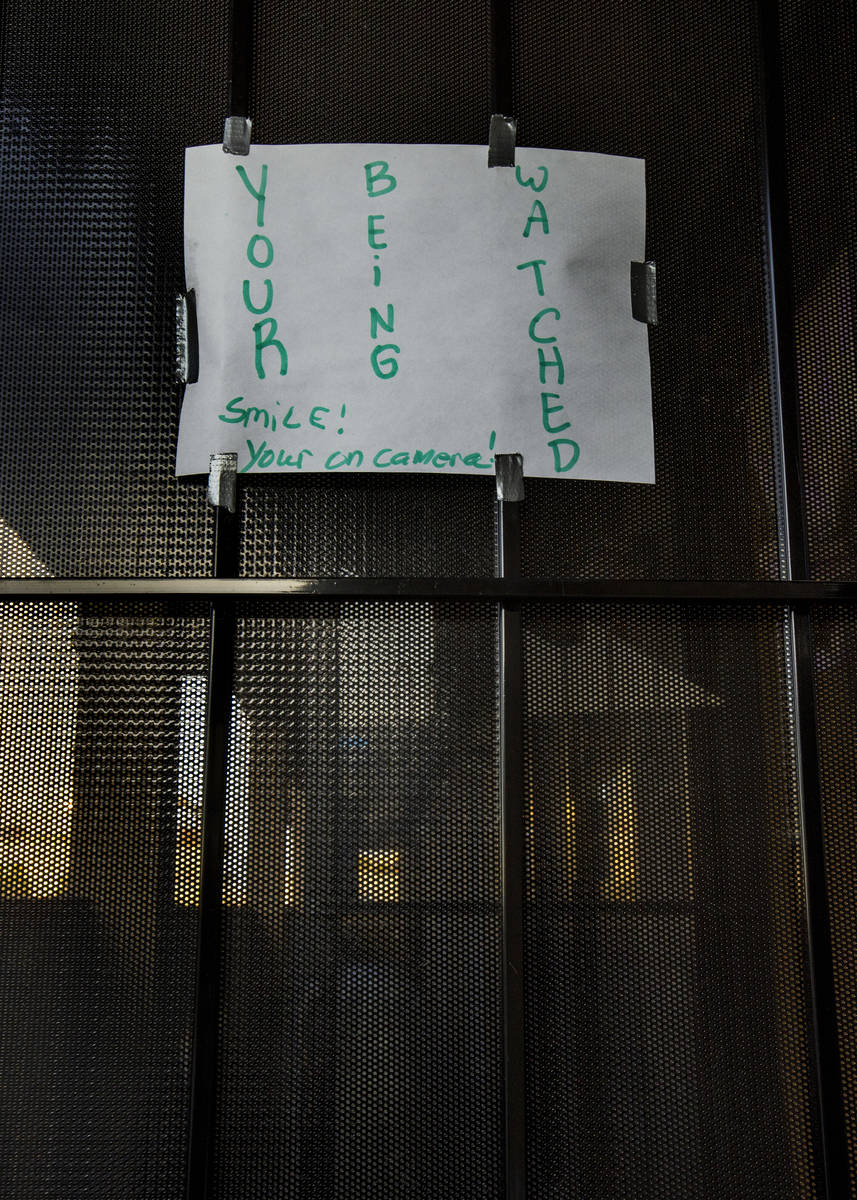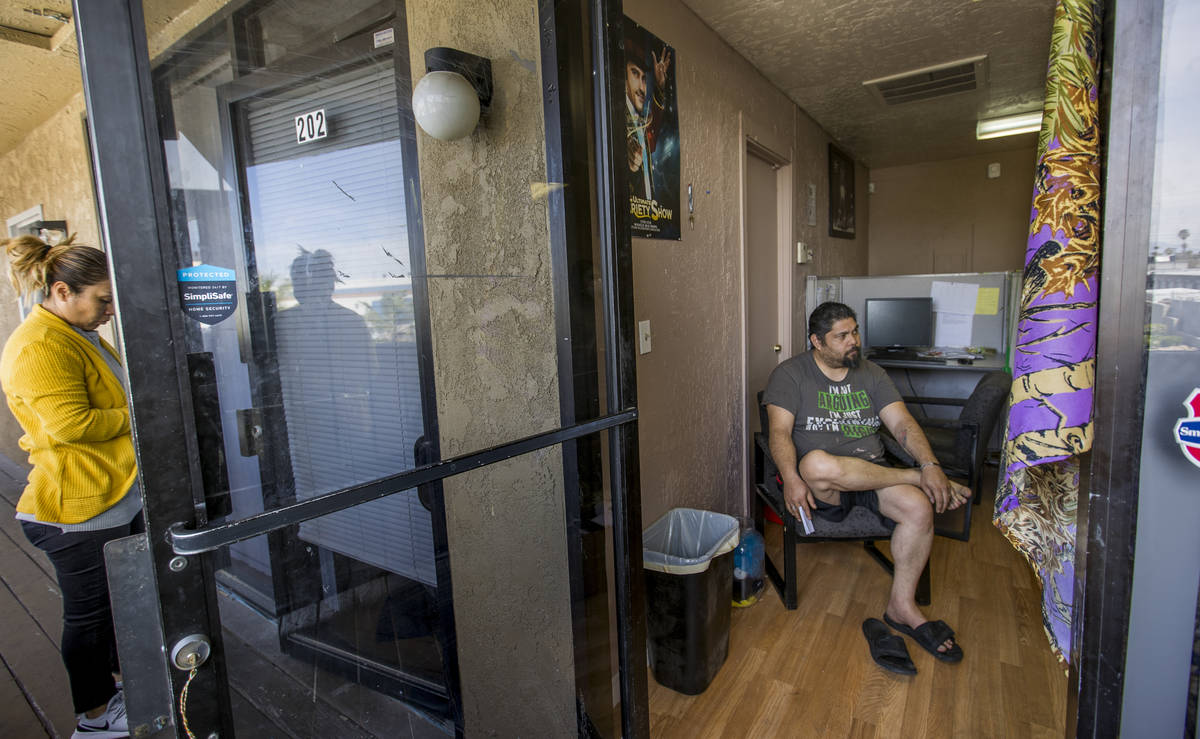‘Rock bottom:’ Evicted family living in 200-square-foot office
Inside the 200-square-foot office space his family now calls home, Jeremy Ferreira punched more phone numbers into his smartphone, desperate for help.
“This is rock bottom,” he said Friday, tugging on his bushy beard. “We don’t know what else we can do.”
The novel coronavirus hit Las Vegas a month ago, and Ferreira was laid off shortly after the outbreak. When his rent payment came up $50 short, he and his family were evicted from their weekly rental in the east Las Vegas Valley — days before Gov. Steve Sisolak’s eviction freeze went into effect.
As a last resort, the family of five moved into his friend’s small call center office space in the central valley that was forced to close amid the pandemic. But finding a more suitable solution has proven challenging.
Ferreira said he has been calling nonprofits for two weeks, but most said they didn’t have the funds yet.
Meanwhile, they’re on their last roll of toilet paper, which they use in the bathroom down the hall. His youngest daughter’s clothes hang from a broken broomstick wedged between two cubicles. They shower with water that’s heated in a small coffee pot.
The lights are on, but the only air conditioning consists of two fans. Ferreira sleeps on two twin mattresses with his wife and two of their teenagers. Their oldest daughter sleeps next to the cubicles, on an inch-thick foam mattress. They have a microwave, a toaster oven and eat canned food. And whatever fits in the tiny cooler.
When contacted by the Review-Journal, Clark County spokesman Dan Kulin said the county would try to accommodate housing for Ferreira and his family as soon as possible.
Even in normal circumstances, shelters that keep families together are in short supply. Last year, the annual homeless survey said 585 homeless families entered homelessness in Clark County. On any given night, 119 were homeless, living in a car, on the street or staying in an emergency shelter.
Las Vegas Rescue Mission, which takes intact families, is consistently full. The Shade Tree only takes mothers and children. Due to COVID-19, they’re only taking clients referred to them by police or other agencies.
On Tuesday, Lisa Morris Hibbler, the city’s chief community service officer, said the city and county were exploring options for sheltering families, including the possibility of renting RVs for families to stay in.
“We haven’t finalized all those plans, but we are pretty close to having some alternatives until we can get through this period,” she said.
Some resources available
A record number of Nevadans are filing for unemployment, and more families than ever are in dire straits.
The same week Ferreira lost his job, a couple with a 10-month-old also found themselves jobless and evicted from a different weekly. They lived in a storage container before they got emergency housing through SHARE Village.
Housing families during the pandemic is especially difficult “because a lot of the apartments that we usually use are closed,” said Aaron Sheets, Hopelink of Southern Nevada’s director of operations and finance.
“When they shut down the city, our phone exploded with people that aren’t normally our clients … But we and other agencies are there to fill the gaps,” Sheets said.
Family Promise, a nonprofit that until March 12 sheltered families in spaces provided by various religious congregations, is trying to fill the gap. This month, they began serving 20 families with emergency shelter — 25 percent more than the average at any given time.
They’ve pivoted to putting families in weekly rentals to encourage social distancing and to prevent the spread of the coronavirus; and the county provided additional funds to do so. Family Promise officials said Friday that the organization would be “on target” to provide shelter and case services until at least June 7.
The agency is also expecting to receive funds from the United Way’s Emergency Assistance and Community Needs fund this week.
“We want (families) to have an end game, so there’s something they can depend on for after the motel shelter,” Director Terry Lindemann said. “This has taught us all how to develop this emergency response, and it’s been a learning curve and we’re all benefiting from it.”
‘A regular, stable home’
Ferreira, who says he is grateful not to be on the streets, said he fears going back to work because his wife, Stephanie, and each of their three kids have compromised immune systems. He doesn’t want to bring anything home.
But he also knows the family only gets $400 in food stamps a month, and they can’t move into an apartment without an income.
“We need a regular, stable home, at least something with a shower,” Ferreira said Friday as he rubbed circles of dirt from the bottoms of his feet. Nearby, his Tabby cat, Jacob, dashed across the room and his daughter, Aubrie, wiped the sleep from her eyes. Outside the door, a woman, who had been living in the office space next to them, walked by.
Ferreira and his family had stayed up all Thursday night, wondering where to go next. They set up a camera and a note to fend off prowlers who had tried to break in. Ferreira said he wondered how long they would have to live there, how it would affect his children.
He looked up at the photo on the wall behind him, of Muhammad Ali standing over Sonny Liston during a boxing match.
“We’ve gotten knocked down quite a bit,” he said.
Contact Briana Erickson at berickson@reviewjournal.com or 702-387-5244. Follow @ByBrianaE on Twitter.
Housing assistance resources
Those in need of assistance can visit UWSN.org/COVID19 for a list of nonprofits and services.
To donate to the United Way fund, visit UWSN.org/donate or text UWSNFUND to 3131.
Contact Family Promise at info@fplv.org or 702-638-8806.
Contact Hopelink at info@link2hope.org or 702-566-0576.



